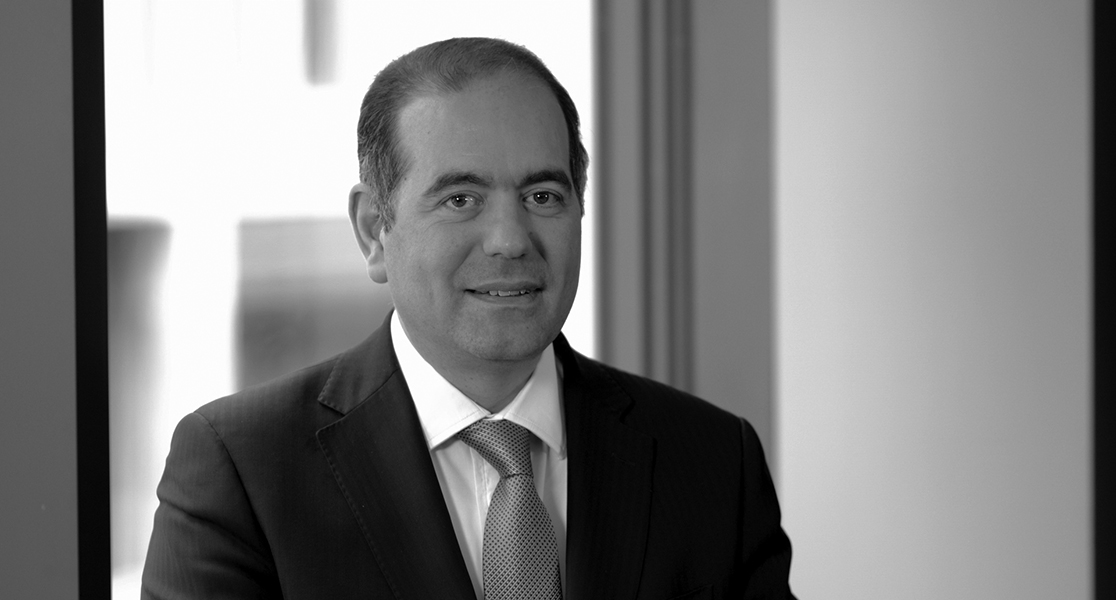
Sir Eric Peacock speaks with Ronel Lehmann, founder of Finito, a careers provider that assists first-time job seekers in making a successful transition from education to employment.
What brought you into the education world and what were you doing before you set up Finito?
It starts with my late father. When I was 13, he arranged for me to work in the market. I mention this because today, young people under the age of 16 can’t go and work anywhere due to risk assessment, chaperoning, insurance and all these pressures. Actually, at age 13, you learn those life skills that you wouldn’t when you’re 16 because you’re suddenly being funnelled through academia. Young people today don’t get taught those essential skills on how to deal with somebody – how to make a phone call, for instance. We see students who cannot make a phone call in front of other people because they are too self-conscious and they don’t know how to do it.
I worked in the market. I went to City of London School and then I had a gap year at Marks & Spencer before I went to the University of Buckingham. I did a two-year course, four terms a year, and the beauty about that was you came out before all of your contemporaries.
My first role was in recruitment before I went into stockbroking, then to financial PR, then I set up my own agency and ran it for 26 years. The reason that I’m doing what I’m doing today, is because every client used to ring up and say, ‘Ronel, can you help my son or daughter?’ And that was it.
I always felt that you could get the best education, the best discipline, the best knowledge, but that’s not everything. When it comes to how to behave, how to answer questions in an interview, how to send a Telex, in those days, then how to send a fax, write an email or address people correctly. Whatever those skills are that you need, you don’t get taught that at college or university. Finito does that. What’s more important is that we don’t let go of you until you succeed. We have some young people who come to us needing more of our time, so we give it to them. Because not everyone is the same.
Can you share with us the specifics of what you provide Finito students with?
It’s a one-to-one business relationship and we work around the individual. We have a journalist rewrite your CV, because a journalist knows how to write the copy for someone who has never met you before. We then redesign it, because the employer doesn’t want to read loads of guff, they just want to see who you are, what you do, where you come from and what your aspirations are. And we can make that compelling in design terms. The last thing we do is train you on LinkedIn and look at your social media channels.
Once we’ve assessed your credentials, we see where you want to go. You might want to be an accountant; you might want to be a banker; you might want to be an engineer or an architect. There are others who have no clue, so we have to find out what interests them. That’s done by a series of meetings with different mentors and then, at the end, we have a few root ideas of what you’re interested in.
Then, the candidate has to start making a list of employers they’re interested in working for. They treat this as their search, their success, but we’re in the background to help them. The worst thing that can happen today is an artificial intelligence (AI) interview.
One of the problems, and one of the reasons that we exist, is because schools, colleges and universities are only interested in academic achievement so that they have a statistic to market to the next lot. They’re not interested in what happens to you afterwards.
So, the student has an idea of what he or she wants to do, has got their LinkedIn and their CV and their target list of folks they would ideally love to work for. I guess the next part is helping them to write a compelling cover letter?
We teach them: you, me, we. So, if they structure their approaches in that way, the employer can see that it’s you, the employer; me, the candidate; we, together.
Is there an aftercare facility as well?
We keep in touch with everyone. The thing is, they will often contact us a year after and say they’re thinking of leaving. We always say: don’t leave until you have a firm job. There are so many people who think they can just go and get another job. It’s a very competitive market, unemployment is at one of its lowest rates, meaning that there’s intense competition for the jobs that are there. And you don’t leave a job without having another one to go to, ever. When you help them to get employment, suddenly everything else in their life falls into place.
Working with younger people, how are you finding that they are coping with change out there? It’s global, it’s technology-focused, it’s highly competitive…
One of the things that we do see is that the youth of today are amazingly adept at grabbing an opportunity. They know that the world is changing. Just look at social media – when something is said, everyone knows because they’ve seen it on Twitter or Instagram. So, there’s a knowledge, which we don’t give them as much credit for as perhaps we should.
You touched on the changes in technology with, for example, the AI interview. Can you explain what that’s like for the benefit of our readers who may not have experienced it?
Effectively, you’re sitting in front of a computer answering questions. And, depending on the type of questions you answer and the algorithms that are behind the questions, you might get accepted or rejected there and then.
HR departments are using AI as a way of not having to sift through 15,000 CVs. So, you [in HR] could say: I want someone who has a degree, who has gone to one of the following five universities, who has shown exceptional performance in certain areas, and the computer will sort through it. If you don’t answer those certain questions, you will be rejected.
The worst thing about it is, you can’t write back and say ‘how can I improve?’ If you have an interview with a human being, you can always write to say thank you and ask for any feedback. With an AI interview, you can’t, it’s over.
The other thing is it can detect whether the questioning causes you pressure or anxiety, whether you’re rude and even whether you bang the table. It depends on the language you use and it’s becoming increasingly sophisticated. There’s a package called HireVue, which is one that’s being used a lot.
I guess within the area of interviews, you’re coaching your clients on how to deal with the tough questions?
We often try and show what happens at the interview when you’re asked: ‘Is there anything else you’d like to ask us?’ And I think asking: ‘do you see me in this role?’ is a great question to ask at the end of an interview. Because you know whether the person is lying, whether they’re telling the truth and if you’ve done well.
I noticed your board of advisors looks to be a very powerful one. That must be great for insights and equally challenging. How important has that been to the development of Finito?
Absolutely vital. It was the first thing I did, to put together an advisory board that an FTSE 100 company would die for.
I’ve known [chairman] John Griffin for 30 years, he’s the most incredible entrepreneur and business person I’ve had the pleasure of knowing. He’s such a source of encouragement. There isn’t a day where he’s not asking the right questions – he’s better than artificial intelligence. I have incredible gratitude to him for believing in what we’re doing. He has a track record for starting Addison Lee with one car and selling the business for £350 million. For me, that’s the best business mentoring that anyone could have.
I approached [advisory board member] Sir Anthony Seldon, who really is a global titan in his own right and a visionary. You cannot find anyone in education who has the history and the knowledge of Seldon.
I approached [former advisory board member] Nicky Morgan after saying: ‘we’re going to have a student who wants to go into parliament one day’. She then became culture secretary so she had to step down. I do hope she’ll come back in time.
Dame Mary Richardson, who was at HSBC, is responsible for bursary outreach. We have a bursary so it’s not just about people who can afford our fees – we don’t want to turn people away.
I read that partnerships have been important for you in terms of growing the business?
The partnerships are great because they are referring prospective candidates to us, but they also enable people to engage with us about what it’s really like out there in the market.
In terms of driving traffic to Finito, you’ve got the partnerships and direct advertising. How important is social media marketing?
It is important. We do a lot of social media and we’re commenting about lots of things all the time. But what we’re trying to do is not forget the old-fashioned way. You and I got on in life and we didn’t need the help because we understood what was required.
Doing it the old-fashioned way then, is almost your differentiator?
Well, I think our students and young people today are so tech-savvy – that’s the difference. For instance, they’ll be sitting there using their mobile phone all the time and they don’t know how to eyeball and how to dress properly; they don’t know how to behave in certain situations. We had a young lady, a candidate of ours, who was filmed by us and she sat playing with her hair all through an interview. When we played back the film, she was absolutely horrified. She learned through the use of technology how she actually comes across.
I guess it emphasises that Finito is a service tailored to the individual. While there are some common areas such as interview techniques, everything comes back to making the individual ready for work, ready for the interview and being successful in that?
When you go back to the scenario of a careers day, you might be sitting in a university lecture hall with someone saying to 40 students: you’re all going to be chartered accountants. There’s always going to be someone who doesn’t want to be a chartered accountant. Just because they’re studying finance or business or economics, it’s assumed that’s the way they’re going to go. We’re about finding out what you really want to do and we’ll then make it happen.
In your experience, what is it that parents worry about as far as their children’s careers are concerned?
The thing they worry about most is whether their children are going to be employed. Everything that happens to you in life is about where you’re going to be and what you’re going to do. The deputy governor of the Bank of England came to the City of London School Governors Dinner and in the middle of his address, he asked everyone: ‘at what age do you think you’re most creative?’ The governors were saying 21, 30, 40… He said, ‘the age is five.’ At five years’ old, you are at your most creative. After that, you just get funnelled, disciplined, your wings are clipped, your behaviour is determined. All parents are interested in, at the end of that process, is if you’re going to be employed.
Likewise, what is the biggest worry that candidates have coming to Finito?
Worrying that they won’t live up to their parents’ expectations. You want your mother and father to be proud of you and it’s worrying when you can’t get that role that you want. Are you going after the right thing? Do you have the right help? And peer pressure is very difficult sometimes. Just because your father is a hedge fund manager doesn’t mean that you have to be. We have to work with what we’ve got.
For Finito, mentoring seems to be a key area of support – would you like to share with us what you look for?
We don’t look for careers advisors or academics, we look for people who have busy lives and can give something back to an individual. We pay all our business members, which is why we are quite expensive as a service.
When we advertised in The Times for business mentors, we had 160 applications. We must have interviewed 40 people and we have 17 mentors at the moment. We have a long list of people who want to join us. The challenge, and this is where scalability is important, is being able to replicate that service in other jurisdictions such as Edinburgh, Leeds, Manchester and Birmingham. We have business mentors who say they need us in their cities because they have young people who need help.
What’s next for Finito in terms of development?
Well, that’s exactly what we’re doing. Instead of everyone coming to London, we want to be in other areas, regionally. That’s the challenge. If the business model works, that’s what we’re going to do next.
You touched also on the fact that your footprint is not only in the UK but internationally, too. Is there any pattern with where the international students come from?
Asia, mainly from China, Africa, the USA – all over the world. One of the biggest challenges for us in marketing terms is making sure that people know we exist.
In addition to all the other things you do for your students, the impact of the network they are now in, their alumni must be a rather powerful one?
It is because we can approach them and say: will you have half an hour with someone who was like you a year ago or two years ago? Secondly, if they’re still looking for the right opportunity, we can open doors. But we always say, just because you pay our fee, doesn’t mean we’re going to get the job for you. We’re not a recruitment consultancy and if we could get the job for you, we would. But that’s not how it works. So, that is very compelling and our network is incredible.
You have some people who go to functions and their whole job is to network. We say to our candidates if you can have one good conversation in an evening, that is more powerful than exchanging 25 business cards with people and following up – and, many of them won’t even reply. So, have an in-depth conversation with somebody and you never know where it could lead. I follow that myself. I’d rather speak with somebody at a function and learn something. As far as I’m concerned, that’s a great meeting.
What drives you in your career?
I don’t know anybody who gets up in the morning who feels like they’re giving back at the same time as helping people to succeed. It’s very empowering. The work that we do isn’t just nine to five. When we spot an opportunity, we’re there and that’s why people love us. They can grab that opportunity and go ahead.



